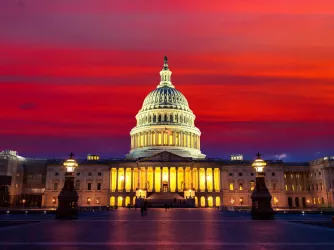Table of Contents
Speech Code of the Month: Indiana State University

FIRE announces its Speech Code of the Month for June 2016: Indiana State University (ISU).
According to ISU’s Code of Student Conduct,
Students at Indiana State University are expected to conduct themselves in a respectful and civil manner. Personal conduct and communication, either directly or indirectly with other students as well as faculty and staff, should conform to the University’s community values and standards.
If you were an ISU student reading this policy, would you have any idea what is actually prohibited? Would you have the faintest idea what, exactly, ISU administrators might deem an indirect communication with other students that is inconsistent with the university’s values? I certainly wouldn’t. And that is a serious problem, constitutionally speaking: the U.S. Supreme Court has held that laws must “give a person of ordinary intelligence a reasonable opportunity to know what is prohibited, so that he may act accordingly,” or else they are unconstitutionally vague. Grayned v. City of Rockford, 408 U.S. 104, 108–09 (1972). And as a public university, ISU is obligated to protect its students’ First Amendment rights, including — especially — the right to express opinions that conflict with the university’s own values.
ISU must also live up to its own commitment to free speech “as essential to the pursuit and dissemination of knowledge and truth.” This commitment is meaningless if the university believes it has already discovered absolute truth in the form of its own “community values and standards,” and prohibits any speech that conflicts with them.
What’s more, ISU cannot prohibit students from engaging in speech simply because that speech may not be “respectful and civil.” A civility requirement like this one potentially encompasses a great deal of protected speech. In fact, a federal magistrate judge struck down a similar policy almost a decade ago at San Francisco State University, and his opinion remains the most eloquent articulation of why such a seemingly innocuous requirement actually poses a substantial threat to free speech:
Civility connotes calmness, control, and deference or responsiveness to the circumstances, ideas, and feelings of others. … Given these common understandings, a regulation that mandates civility easily could be understood as permitting only those forms of interaction that produce as little friction as possible, forms that are thoroughly lubricated by restraint, moderation, respect, social convention, and reason. The First Amendment difficulty with this kind of mandate should be obvious: the requirement “to be civil to one another” and the directive to eschew behaviors that are not consistent with “good citizenship” reasonably can be understood as prohibiting the kind of communication that it is necessary to use to convey the full emotional power with which a speaker embraces her ideas or the intensity and richness of the feelings that attach her to her cause. Similarly, mandating civility could deprive speakers of the tools they most need to connect emotionally with their audience, to move their audience to share their passion.
In sum, there is a substantial risk that the civility requirement will inhibit or deter use of the forms and means of communication that, to many speakers in circumstances of the greatest First Amendment sensitivity, will be the most valued and the most effective.
College Republicans at San Francisco State University v. Reed, 523 F. Supp. 1005, 1018–20 (N.D. Cal. Nov. 19, 2007).
Like many speech codes, ISU’s civility policy receives a “yellow light” rating from FIRE, which means, in this case, that it is vague and invites abuse by those in power. While many people associate the term “speech codes” with policies earning FIRE’s worst, “red light” rating, it is critical to understand that yellow light policies are overwhelmingly unconstitutional as well.
That includes ISU’s policy, which, with its excessively vague prohibitions, is almost certain to have an impermissible chilling effect on campus speech. For this reason, it is our June 2016 Speech Code of the Month.
If you believe that your college’s or university’s policy should be a Speech Code of the Month, please email speechcodes@thefire.org with a link to the policy and a brief description of why you think attention should be drawn to this code. If you are a current college student or faculty member interested in free speech, consider joining the FIRE Student Network, a coalition of college faculty members and students dedicated to advancing individual liberties on their campuses.
Recent Articles
FIRE’s award-winning Newsdesk covers the free speech news you need to stay informed.

O holy fight: New Hampshire Satanic Temple statue threatened by more than vandals

One day after FIRE lawsuit, Congress passes changes to filming permits in national parks

VICTORY: FIRE lawsuit leads California to halt law penalizing reporters, advocates, and victims who discuss publicly known information about sealed arrest records
